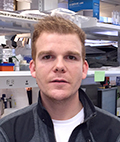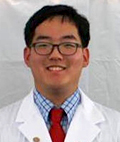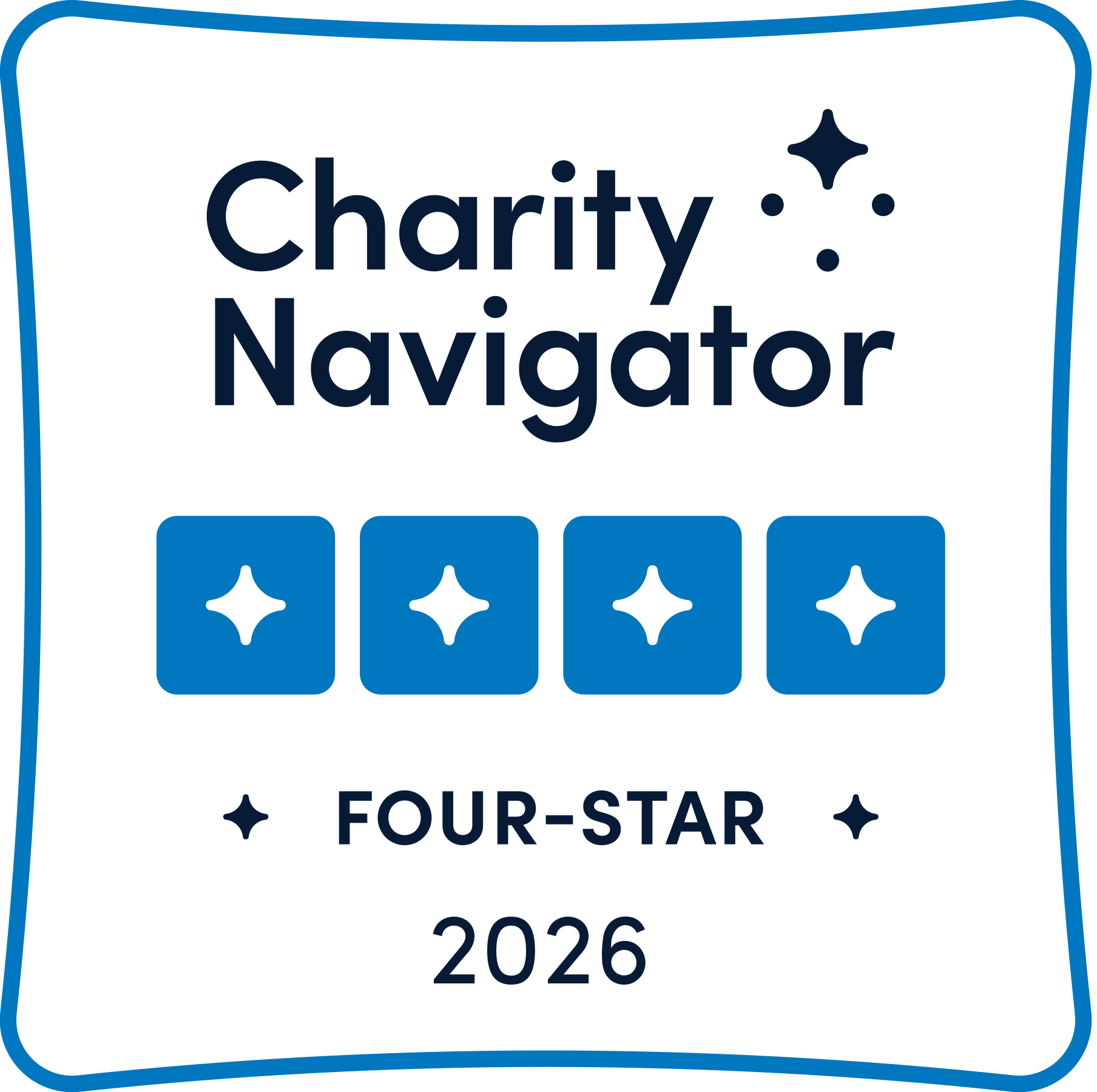2016 Award and Grant Recipients
Below are brief biographies for American Skin Association's 2016 grantees. Among the information included is the title of the grant, the name of the sponsoring institution and the focus of the grant recipient's research.
-

Dr. Jean Christopher Chamcheu
2016 Carson Research Scholar Award in Psoriasis
School of Medicine and Public Health/University of Wisconsin-Madison
Topic: Role of PI3K/Akt/mTOR Signaling and its Targeting in Psoriasis Pathogenesis and TreatmentJean Christopher Chamcheu, PhD is an Assistant Scientist in the Department of Dermatology, at the University of Wisconsin-Madison, School of Medicine and Public Health, working under the direction of Dr. Hasan Mukhtar. He earned his BS in Biochemistry (2000) from the Faculty of Science at the University of Dschang, Cameroon. He then moved to Sweden where he completed his MS in Biomedicine (2004) at the Linköping University Health Science Faculty, followed by a PhD in Dermatology & Venereology (2010) at the Uppsala University Faculty of Medicine and Pharmacy. His PhD work with Drs. Hans Törma and Anders Vahlquist focused on identifying the underlying genetic and molecular basis, and developing new pharmacologic strategies for treating epidermolytic keratinopathic genodermatoses, as well as developing 3D tissue engineered human skin models of these disorders. Dr. Chamcheu immediately joined the Department of Dermatology at the University of Wisconsin-Madison where he completed over three and a half years of post-doctoral training (2014). His projects at UW-Madison have included amongst others, defining the role of Caspase-14 in the pathogenesis of psoriasis and using preclinical, in vitro and 3D models of human skin disease to establish the utility of delphinidin, a novel small molecule for treating psoriasis. In 2014, he was promoted to his current rank of Assistant Scientist, a position equivalent to Research Assistant Professor at many Universities in the U.S. Dr. Chamcheu is now expanding his research program in psoriasis with studies aimed at uncovering amongst others, the contribution of the PI3K/Akt/mTOR signaling pathway to psoriasis pathogenesis, as well as how to target this pathway effectively using natural small molecule inhibitors. The ultimate goal of these studies is to identify novel prognostic markers and therapeutic targets for treating psoriasis and possibly other inflammatory and hyperproliferative disorders.
-

Dr. Willy Hugo
2016 ASA Research Scholar Award in Melanoma/Non-Melanoma Skin Cancer
UCLA Dermatology/Medicine
Topic: Combinatorial MAPK and immune checkpoint inhibition in MelanomaWilly Hugo, PhD is a postdoctoral scholar at the Division of Dermatology, UCLA School of Medicine under the supervision of Roger S. Lo MD, PhD. He earned his PhD in Computational Biology from the National University of Singapore in 2011. Dr. Hugo's current research focuses on integrating large omic scale patterns (encompassing the genome, transcriptome, methylome, regulome and proteome) that can potentially explain melanomas sensitivity/resistance toward existing targeted- and immunotherapies.
-

Dr. Tobias Schatton
2016 Milstein Research Scholar Award Melanoma/Non-melanoma Skin Cancer
Brigham and Women’s Hospital
Topic: Immune and Tumor Cell Intrinsic Roles of the PD-1 Checkpoint Receptor in MelanomaDr. Tobias Schatton is a PharmD graduate of the University of Frankfurt, Germany. He earned his PhD in Biochemistry from the University of Wuerzburg, Germany, based on research conducted during a Postdoctoral Fellowship at Harvard Medical School under the mentorship of Dr. Markus Frank. His laboratory research centers on stem cell systems of the skin. In the study of human melanoma, his objective is to mechanistically dissect how tumorigenic melanoma subpopulations impact neoplastic progression and cancer therapeutic resistance, with an emphasis on the immunomodulatory properties of these virulent tumor cell subsets. The study of previously unrecognized melanoma cell-intrinsic roles of the PD-1 pathway in tumor immune evasion and cancer progression represents a particular research focus of the Schatton laboratory. In normal skin physiology, Dr. Schatton’s laboratory examines the newly discovered immunoregulatory effects of PD-1-expressing dermal mesenchymal stem-like cells, with a view to utilize such cell populations for therapeutic immunomodulation. Dr. Schatton is currently an Instructor in Dermatology at Harvard Medical School and a Research Associate of the Department of Dermatology at Brigham and Women’s Hospital in Boston, MA.
-

Dr. Jillian Richmond
2016 Calder Research Scholar Award Vitiligo/Pigment Cell Disorders
University of Massachusetts Medical School
Topic: Determining the contributions of dermal resident and recruited cells in vitiligoJillian Richmond, PhD is an Instructor in the Department of Medicine, Division of Dermatology at the University of Massachusetts Medical School. Dr. Richmond earned her undergraduate degree in Molecular and Cellular Biology from the Johns Hopkins University, and her doctoral degree in Pathology and Immunology from Boston University School of Medicine. She performed a postdoctoral fellowship in chemokine biology at Massachusetts General Hospital before moving to the Harris Lab at the University of Massachusetts Medical School to study chemokines in vitiligo. Her postdoctoral work examined which cells in the skin produce chemokines to drive vitiligo pathogenesis, which was funded by an American Skin Association Research Grant. Her current research focuses on how different subsets of autoreactive memory T cells navigate through the dermis and kill melanocytes at the dermal-epidermal junction.
-

Panteleimon Rompolas, PhD
2016 American Skin Association Research Scholar Award
University of Pennsylvania
Topic: Elucidating the molecular mechanism of stem cell fate in hair follicle regenerationPanteleimon Rompolas, PhD is an Assistant Professor of Dermatology at the University of Pennsylvania Perelman School Of Medicine. Dr. Rompolas graduated with an M.B.A. in Management and a Ph.D in Biomedical Science from the University of Connecticut Health Center. He continued his training as a New York Stem Cell Foundation- Druckenmiller Fellow at Yale University School of Medicine where he developed a system that established for the first time the ability to visualize stem cells in their native environment in mammalian skin. His lad is focused on understanding the biological basis of skin regeneration and elucidating the role of stem cells in skin disease.
-

Dr. Haley Naik
2016 Research Grant for Psoriasis/Inflammatory Skin Diseases
University of California, San Francisco
Topic: A Pilot Study Examining Skin Microbiome Shifts in Hidradenitis SuppurativaHaley Naik, MD MHSc is an Assistant Professor of Dermatology at the University of California, San Francisco. Dr. Naik earned her medical degree at Harvard Medical School and then completed dermatology residency at the Harvard Combined Dermatology Program. She went on to complete a clinical research fellowship with the Dermatology Branch at the National Cancer Institute, where she also earned a Master of Health Sciences as part of the NIH-Duke University Training Program in Clinical Research. Her research focuses on using clinical and translational methods to understand mechanisms underlying inflammatory skin diseases
-

Dr. Teal Furnholm
2016 Research Grant for Psoriasis/Inflammatory Skin Diseases
University of Michigan
Topic: Global Metabolome Analysis to Elucidate Microbiome Involvement in PsoriasisDr. Teal Furnholm is a first-year postdoctoral trainee at the University of Michigan Department of Dermatology. She has over a decade of molecular biology and bioinformatics experience, working on novel gene discovery in the field of bioremediation both at Purdue University and the University of New Hampshire. Through genome-mining and by creating various algorithms, she discovered gene regulatory domains conserved across kingdoms, and identified new mechanisms that bridged previous research to create a more complete model of lead resistance in Frankia. During her Ph.D. at UNH, she worked as a National Science Foundation fellow to implement inquiry-based STEM curriculum in local high schools, as well as designing and teaching a course in experiential bioinformatics. While completing her Ph.D. in microbiology, she co-founded and worked as a CEO of an educational technology company, Eddefy. She has 9 years of experience using computational and molecular methods to study host-microbe interactions, and now studies the human microbiome in the context of psoriasis. Her current project involves assessing microbially-derived or altered metabolites that induce or exacerbate psoriasis lesions.
-

Dr. Jennifer Huang
2016 Research Grant for Childhood Skin Disease/Disfigurement
Boston Children’s Hospital
Topic: Melanoma and non-melanoma skin cancer in children and young adults with iatrogenic risk factorsDr. Jennifer Huang is an Assistant Professor of Dermatology at Harvard Medical School and a pediatric dermatologist at Boston Children’s Hospital. She received her medical degree from the Washington University School of Medicine. She completed pediatrics residency at Morgan Stanley Children’s Hospital, dermatology residency at University of Colorado, and pediatric dermatology fellowship at Boston Children’s Hospital. Her research interests include graft versus host disease and left effects of the skin in childhood cancer survivors.
-

Dr. Thomas Strub
2016 Mandelbaum Research Grant for Skin Cancer and Melanoma
Icahn School of Medicine at Mount Sinai Hess Center for Science and Medicine
Topic: Epigenetic Regulation Underlying Melanoma Resistance to MAPK Signaling InhibitorsThomas Strub, PhD is a Postdoctoral Fellow in the Departments of Oncological Sciences and Dermatology at the Icahn School of Medicine at Mount Sinai in New York City. Dr. Strub graduated from the University of Strasbourg (France). He then completed his doctoral training with Dr. Irwin Davidson at the Institut de Génétique et de Biologie Moléculaire et Cellulaire (IGBMC) in Illkirch, France, where his work focused on the role of the transcription factor MITF and its regulatory network in human melanoma cells. Since joining Dr. Emily Bernstein’s laboratory in 2013, Dr. Strub has been investigating epigenetic contributions to melanoma resistance to ERK signaling inhibitors. In this time, he has pioneered innovative approaches to map the epigenomic landscape of drug resistant melanoma cells and has identified epigenetic regulators that mediate this resistance via high throughput loss-of-function assays. These studies will shed light onto the epigenome of drug resistant melanoma cells and provide gene expression patterns, driver genes, and DNA regulatory elements involved in melanoma resistance. Overall, these studies aim to provide novel epigenetic targets for therapy to prevent melanoma drug resistance.
-

Dr. Prashiela Manga
2016 Mulvaney Family Foundation Research Grant for Vitiligo and Pigment Cell Disorders
New York University School of Medicine
Topic: Delineating cellular stress response pathways implicated in the onset of vitiligoPrashiela Manga, PhD is an Associate Professor in The Ronald O. Perelman Department of Dermatology at New York University School of Medicine (NYU). Dr. Manga completed her doctoral studies in Human Genetics at the University of the Witwatersrand in South Africa and post-doctoral training in the laboratory of Dr. Seth J. Orlow at NYU. She was on staff at the University of Cincinnati before returning to join the faculty at NYU where her research program focuses on skin pigment disorders including vitiligo and albinism. Her group has been investigating the early cellular events that trigger vitiligo and precipitate autoimmune targeting of melanocytes. Her research focus also includes the role of melanocyte-specific proteins required for melanin synthesis and related disorders, such as oculocutaneous albinism, that result from mutations in the genes that encode these proteins.
-

Dr. Arianne Shadi Kourosh
2016 Research Grant for Quality of Life/Health Services/Outcome Studies
Massachusetts General Hospital
Topic: Avatoras–A Telehealth Innovation to Address Access & Compliance Barriers for Chronic Skin DiseaseDr. Kourosh is a board certified dermatologist and Instructor in Dermatology at Harvard Medical School. She graduated from the University of Texas Southwestern Medical Center, receiving the institution's Excellence Award in Dermatology. She completed her internship in Internal Medicine at Tulane Medical Center, and dermatology residency at UT Southwestern Medical Center, where she received the awards for Leadership in the specialty of Dermatology and for Outstanding Professionalism and Humanism as a physician.
Dr. Kourosh is committed to patient advocacy and solving public health problems for patients with skin disease. She developed the Skin Advocate iPhone App, a free iPhone application that connects patients with patient advocacy organizations for their skin conditions. She has published and been recognized in many publications, including the Journal of the American Academy of Dermatology (JAAD), JAMA Dermatology, Dermatologic Clinics, and Dermatology World Magazine. She serves as Deputy Editor for Dialogues in Dermatology, an AAD sponsored international educational series for physicians.
Dr. Kourosh serves as the Dermatology Department's Director of Community Health and staff dermatologist at MGH and the MGH Health Centers in Chelsea and Revere, increasing access to dermatologic care for underserved communities in the Boston area. She also advocates for patients at the national level as the State Advocacy Leader for Massachusetts in the AAD's delegation to Congress to protect medical research and affordable care for patients with skin disease.
Her research interests focus on the development and application of technologies and innovative methods to promote patient advocacy and solve problems in healthcare. She is currently working on innovations involving novel telemedicine platforms to increase access to care.
Dr. Kourosh also founded and directs Project Phoenix, a pro bono tattoo removal program for patients in need of assistance with job acquisition and social reintegration, and conducts research around tattoos as a social determinant of health.
-

Ms. Sarah Ahmed
2016 Medical Student Grants Targeting Melanoma & Skin Cancer Research
Sidney Kimmel Medical College at Thomas Jefferson University
Topic: Intralesional and intradermal non-viral genetic engineering of melanoma-targeting T cellsSarah Ahmed is a first year medical student at Sidney Kimmel Medical College at Thomas Jefferson University. She graduated from Pennsylvania State University through the accelerated Premedical-Medical Program with a bachelors in Science, and plans to continue research in melanoma immunotherapy. She is originally from Wallingford, Pennsylvania.
-

Ms. Allison Dobry
2016 Medical Student Grants Targeting Melanoma & Skin Cancer Research
Harvard Medical School
Topic: Testing Inhibitors of NRSA-Associated Pathways as Potential Therapeutic Strategies for Preclinical Models of Congenital Giant NeviAllison grew up in San Diego, California, before moving out to Boston to attend MIT, where she majored in Brain & Cognitive Sciences and minored in Biology. While there, she did extensive research in synthetic neurobiology and optogenetics. Currently, she is a fourth year student at Harvard Medical School. Her clinical research experience has covered topics such as face transplantation, calciphylaxis, and rare melanotic tumors. She was chosen as a Medical Research Fellow by the Howard Hughes Medical Institute, and is currently working in a basic science laboratory testing therapeutic options for congenital giant nevi and better understanding the role of oncogene-induced senescence in melanoma formation.
-

Ms. Madeleine Gantz
2016 Medical Student Grants Targeting Melanoma & Skin Cancer Research
Icahn School of Medicine at Mount Sinai
Topic: Investigation of BET proteins as prognostic and therapeutic tools for melanomaMadeleine Gantz is a member of the Class of 2017 at Drexel University College of Medicine. She received her Bachelor’s degree in Mathematics from Lafayette College in Easton, Pennsylvania and holds a Master of Science in Nutrition from Columbia University College of Physicians and Surgeons. Madeleine is currently pursuing a year of basic science research at the Icahn School of Medicine at Mount Sinai, where she is studying melanoma epigenetics in Dr. Emily Bernstein’s laboratory. She is originally from Westport, Connecticut.
-

Mr. Charles Gast
2016 Medical Student Grant Targeting Melanoma and Skin Cancer
Oregon Health & Science University
Topic: Cancer-macrophage fusion as a mechanism for metastatic disease in melanomaCharles Gast is a 5th year MD/PhD student at Oregon Health & Science University (OHSU) with particular interests in determining how macrophages promote progression of cancer. Specifically, he is investigating how melanoma cells acquire intrinsic phenotypes that promote metastasis by physically fusing with macrophages to create a hybrid cell, essentially hijacking normal macrophage function to advance tumor progression. Prior to enrolling at OHSU, Charles spent five years as a research assistant investigating mechanisms of virulence and drug resistance in fungal pathogens. He received a B.A. from Lewis & Clark College in Biochemistry and Molecular Biology in 2006 and is originally from Ft. Collins, Colorado.
-

Ms. Chloe Goldman
2016 Medical Student Grant Targeting Melanoma and Skin Cancer
New York University of Medicine
Topic: Metabolic reprogramming and its association with invasion in melanomaChloe Goldman is a member of the Class of 2017 at New York University School of Medicine. She is currently pursuing a year of basic science research in the Department of Dermatology at NYU School of Medicine. She received her Bachelor of Arts degree from Cornell University, where she studied biology. She is originally from New York, NY.
-

Mr. Sanghee Lim
2016 Medical Student Grant Targeting Melanoma and Skin Cancer
Boston University School of Medicine
Topic: Defining Novel Mechanisms of Genome Instability in MelanomaSanghee Lim is a fourth-year MD/PhD student at the Boston University School of Medicine (BUSM). He graduated from Boston University with a Bachelor’s in Medical Science and a Bachelor’s with Honors in Political Science. His undergraduate research focused on metastatic renal cell carcinoma, and in his senior year, he was awarded the Harold C. Case Scholarship, one of the highest undergraduate honors available at Boston University. Sanghee’s research interests include molecular mechanisms underlying tumorigenesis, and addressing socio-economic disparities in cancer care outcomes through integrated health system approaches. He is currently studying melanomagenesis and chromosomal instability in the Laboratory of Cancer Cell Biology at BUSM under Dr. Neil Ganem PhD. Sanghee was born in Seoul, South Korea, and grew up in Great Britain and Guatemala.
-

Ms. Caroline Tan
2016 Medical Student Grant Targeting Melanoma and Skin Cancer
Stanford University School of Medicine
Topic: Understanding the Genetic Etiology of Basosquamous CarcinomasCaroline Tan is a second year medical student at Stanford University School of Medicine. She graduated cum laude from Columbia University in New York City with honors in biological sciences. Her undergraduate research focused on markers of celiac disease in patients with cerebellar ataxia and gluten insensitivity. She is currently studying the genetic mutations and clinical features and outcomes of basosquamous carcinoma. She is originally from Short Hills, New Jersey.
Recipients list by year:
2024 |2023 | 2022 | 2021 | 2020 | 2019 | 2018 | 2017 | 2016 | 2015 | 2014 | 2013 | 2012




